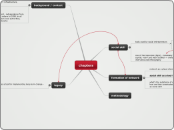door Kasia W 9 jaren geleden
212
chapters
In the late 20th and early 21st centuries, Polish cities underwent significant transformations, largely influenced by decentralizing reforms and the country's transition to a market economy.

door Kasia W 9 jaren geleden
212

Meer zoals dit
what institutions?
fan culture
amateur sport
NGOs in Gdansk
municipal organizations in Gdansk
"municipality" - City Council
municipal transport
Centre for City Management
"Team for City Management"
volunteering in Gdansk
flatter rather than hierarchical
Weber - objections to bureaucracy
"the longer the chain of command the more risk that details get lost, each level tends to gloss over when they pass information to their superiors" (fro the interview)
more effective and efficient, this way they can serve social change
institutions that are closer to citizens - more democratic
"they are where they are needed, and not where they have their offices"
they are more available - shorter access path
they know the needs of recipients
citizens are aware of their existance and of their goals
common goal - "Polish mobilization", showing off to strangers, "temporary social capital" (Geremek)
simplification of procedures - Szymon explained it the first interview, but it kept coming up in the later interviews as well; how? -> e.g. faster reactions to correspondence, more dealings over the phone, more informality
how? what is it?